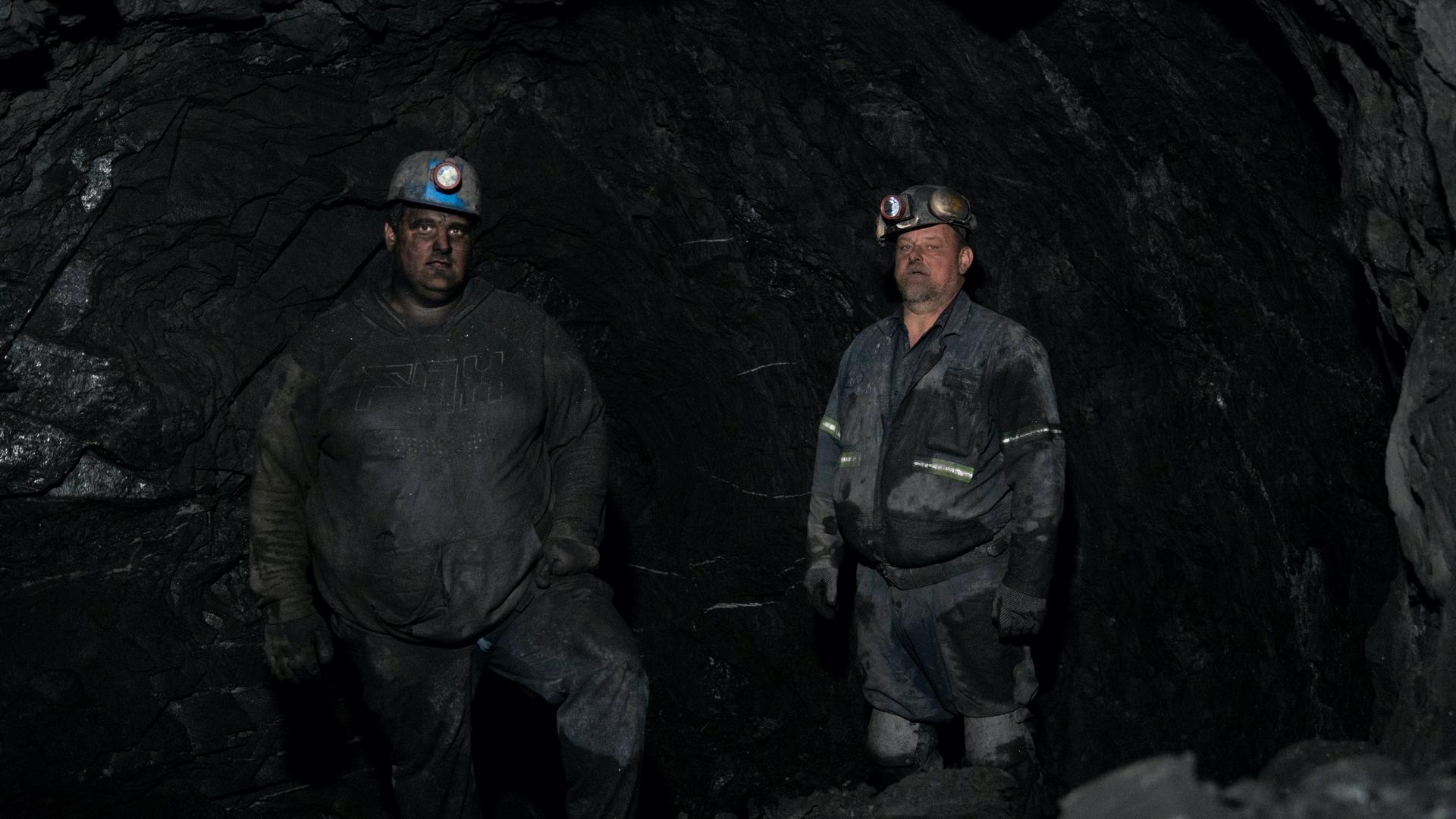COVID-19 is trouble for coal miners struggling with black lung disease
Appalachian miners who experience the debilitating, terminal condition known as black lung disease have to fight to get the care and government support they need, even in the best of times. Now, the COVID-19 pandemic is making life even harder.
“You gotta wear a mask, and with your breathing problems and stuff, it’s hard to walk around and breathe through the mask. It’s like sucking in hot air.”
“You gotta wear a mask, and with your breathing problems and stuff, it’s hard to walk around and breathe through the mask. It’s like sucking in hot air,” says Jerry Coleman, who worked as a coal miner for 37 years, mostly underground near Cabin Creek, West Virginia. “But I don’t have no choice. With the condition of my lungs, I can’t take a chance.”
Coleman has complicated black lung disease, also known as progressive massive fibrosis, which is incurable. The lungs of someone with PMF are permanently and irreversibly scarred and the lungs gradually deteriorate until the person can no longer breathe.
COVID-19 is classified as a respiratory virus. It can affect and even be deadly to the healthiest of people, but the most vulnerable are those with high-risk conditions, such as lung disease and old age — common characteristics of much of West Virginia’s former coal miner population.
“If you have black lung, that’s going to take away some lung function. So that person, if they get COVID [-19] and it bothers their lungs, they’re going to run out of usable lung much faster than somebody who starts out with healthy lungs.”
“Each different lung disease kind of takes away some of your lung function,” says Carl Werntz, an occupational medical specialist who gives black lung exams, a crucial step to apply for federal black lung benefits. “If you have black lung, that’s going to take away some lung function. So that person, if they get COVID [-19] and it bothers their lungs, they’re going to run out of usable lung much faster than somebody who starts out with healthy lungs.”
Related: How the coronavirus crisis has exposed entrenched health inequities
Since the pandemic began, Werntz says, black lung exams were put on hold at the clinic in Cabin Creek where he works. Exams slowly resumed in July, but at half capacity. Typically, he sees six to eight patients a day, but with new COVID-19 protocols, Werntz says he sees three to four — creating a backlog of patients waiting for their black lung exam.
“The longer you wait to do the testing to show that they really have the disease, the longer it is until they can get the benefits, including, potentially, medical care if they don’t have some other way to pay for their breathing care,” Werntz explains.
Federal black lung benefits include monthly payments and medical coverage for lung treatment — treatment that is expensive, says Jerry Coleman. The fight for benefits can be long, even without a pandemic. Coleman said he fought for seven years to receive his benefits. “Until you get awarded it, you have to pay for anything that pertains to your breathing, and you’re not going to spend exactly what you have to spend because you don’t have the money to waste,” he says. “It’s a shame to say, but that’s the way it is.”
Related: After coal: A new book and documentary chronicle ‘stories of survival in Appalachia and Wales’
With COVID-19 severely limiting the number of patients who can come in for their black lung exams, the wait to get benefits keeps growing for some miners. Mickey Pettry, a 63-year-old man with the disease who worked in the coal mines much of his life, has been fighting for his federal benefits for three years. And now, because of the pandemic, everything is on hold, he says. “The entire focus is on the battle going on up in DC, so there’s very little attention being paid to anything else,” Pettry notes.
Even more worrisome is this: The coal excise tax, which is the primary source of funds for the Black Lung Disability Trust Fund, is set to expire at the end of this year. This means money for black lung benefits could dry up quickly. This issue is a priority for black lung associations, said Coleman. He and other members from local associations went to DC last year and helped secure the funding through 2020. But with COVID-19, Coleman says it is harder for the associations to hold meetings and to advocate for the renewal of the legislation.
“Our voice is what’s gotta be heard. If we don’t speak out, it’s gonna be forgotten.”
“Because our voice is what’s gotta be heard,” he says. “If we don’t speak out, it’s gonna be forgotten.”
In the meantime, the social lives of those struggling with black lung disease have diminished. Coleman says he spent most of his spring and summer at home — trying to social distance. Pettry says that not being able to go to the monthly black lung association meetings takes a mental toll. Many of the members are his neighbors, friends or former co-workers and the meetings have a therapeutic aspect. But now, even going to the store is a risk, Pettry says.
“I don’t have a lot of tolerance for people now. There are so many people that think wearing a mask is a joke,” he says. “People have a right to their opinion, but we can’t afford to say that [COVID-19] is not real. When they infringe upon our protection, I get really upset.”
This article is based on a report by Caitlin Tan of West Virginia Public Radio that aired on Living on Earth from PRX.
